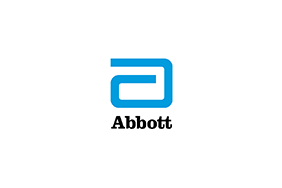Abbott Statement on Advancing Pediatric HIV Treatment in Developing Countries
Published 03-14-06
Submitted by Abbott
Advancing Pediatric HIV Treatment
Abbott is developing a lower-dose pediatric tablet formulation of its HIV protease inhibitor (PI), lopinavir/ritonavir. Using a novel technology called Meltrex® developed through significant investment by Abbott, the new tablets are being developed with the goals of eliminating the need for refrigeration of the tablets, and to provide the dosing flexibility needed for treating children.
Long-Standing Access to Pediatric Formulations
The treatment needs of children have always been an integral part of Abbott's HIV research programs. Abbott invested in clinical studies of both of its PIs in children at the same time as it studied the medicines for adult use, and the oral solution formulations of both PIs have demonstrated safety and effectiveness in pediatric HIV treatment. Abbott's PIs are both available in liquid formulations around the world to provide flexible dosing for children. In Africa and the Least Developed Countries (LDCs), Abbott has provided its PI liquid formulations at the lowest price of any PI liquid formulation in Africa, including both branded and generic PIs.
Philanthropic Programs Improving the Lives of Children
Abbott and the Abbott Fund are investing $100 million to fight HIV/AIDS in developing countries, including several programs directly addressing barriers to testing, treatment and care of children with HIV:
Additional Abbott Program Results in Developing Countries
In addition to child-focused programs, Abbott and the Abbott Fund are addressing fundamental barriers to testing, treatment and support services for people living with HIV; results to date include:
Lopinavir/Ritonavir Indication and Safety Information
Lopinavir/ritonavir is always used in combination with other anti-HIV medicines to treat people with human immunodeficiency virus (HIV) infection. Lopinavir/ritonavir is a combination of two medicines. They are lopinavir and ritonavir. Lopinavir/ritonavir is a type of medicine called an HIV protease (PRO-tee-ase) inhibitor. Lopinavir/ritonavir is for adults and for children age six months and older.
Once-daily dosing of lopinavir/ritonavir in combination with other anti-HIV medicines is not recommended for people with previous HIV treatment and has not been evaluated in children.
Important Safety Information
Lopinavir/ritonavir does not cure HIV infection or AIDS and does not reduce the risk of passing HIV to others.
Lopinavir/ritonavir should not be taken by people who have had an allergic reaction to lopinavir/ritonavir or any of its ingredients, including lopinavir or ritonavir.
Taking lopinavir/ritonavir with certain drugs can cause serious problems or death. Lopinavir/ritonavir should not be taken with dihydroergotamine, ergonovine, ergotamine, and methylergonovine such as Cafergot(R), Migranal(R), D.H.E. 45(R), Ergotrate Maleate, and Methergine, as well as Halcion(R), Hismanal(R), Orap(R), Propulsid(R), Seldane(R) or Versed(R).
Lopinavir/ritonavir should also not be taken with rifampin, also known as Rimactane(R), Rifadin(R), Rifater(R), or Rifamate(R), Flonase(R), Mevacor(R), Zocor(R) or products containing St. John's wort (Hypericum perforatum). Once-daily Lopinavir/ritonavir should not be taken with Agenerase(R), Sustiva(R), Viracept(R), Viramune(R), Dilantin(R), Phenobarbital or Tegretol(R).
Particular caution should be used when taking Viagra, Cialis or Levitra, since the interaction with lopinavir/ritonavir may result in an increase in their related side effects. Patients should discuss all medicines, including those without a prescription and herbal products that they are taking or plan to take, with their doctor or pharmacist.
Pancreatitis and liver problems, which can be fatal, have been reported in patients receiving lopinavir/ritonavir. Patients should tell their doctor if they have nausea, vomiting, or abdominal pain, which may be signs of pancreatitis, or if they have or have had liver disease such as hepatitis B or C. In patients taking protease inhibitors, increased bleeding (in patients with hemophilia) and diabetes/high blood sugar have occurred.
Changes in body fat have been seen in some patients receiving anti-retroviral therapy. The cause and long-term health effects of these conditions are not known at this time. Some patients receiving lopinavir/ritonavir have had large increases in triglycerides and cholesterol. Varying degrees of cross-resistance among protease inhibitors have been observed.
The most commonly reported side effects of moderate severity are: abdominal pain, abnormal bowel movements, diarrhea, feeling weak or tired, headache, and nausea. Children taking lopinavir/ritonavir may sometimes get a skin rash. This is not a complete list of reported side effects.
Diarrhea may be more common in patients taking lopinavir/ritonavir capsules once-daily compared to the twice-daily dose (57 percent vs. 35 percent of mild to severe events and possibly related to the drug; and 16 percent vs. 5 percent of at least moderate severity and possibly related to the drug as found in a clinical study). Lopinavir/ritonavir oral solution contains alcohol. Exposure of this product to high humidity outside the original container for longer than two weeks is not recommended.
For more information, including full prescribing information, please visit www.kaletra.com.
About Abbott
Abbott is a global, broad-based health care company devoted to the discovery, development, manufacture and marketing of pharmaceuticals and medical products, including nutritionals, devices and diagnostics. The company employs 60,000 people and markets its products in more than 130 countries.
Abbott's news releases and other information are available on the company's Web site at www.abbott.com.

Abbott
Abbott
About Abbott and the Abbott Fund
The Abbott Fund is a philanthropic foundation established by Abbott in 1951. The Abbott Fund's mission is to create healthier global communities by investing in creative ideas that promote science, expand access to health care and strengthen communities worldwide. For more information, visit www.abbottfund.org.
Abbott is a global, broad-based health care company devoted to the discovery, development, manufacture and marketing of pharmaceuticals and medical products, including nutritionals, devices and diagnostics. The company employs nearly 90,000 people and markets its products in more than 130 countries. Abbott's news releases and other information are available on the company's website at www.abbott.com.
More from Abbott

